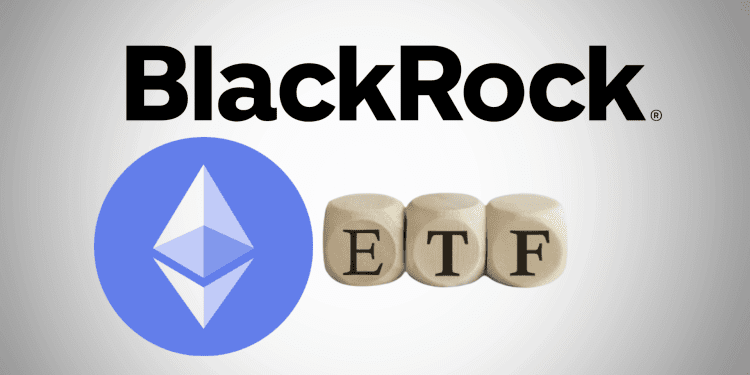- BlackRock CEO Larry Fink has hinted at plans for an Ethereum ETF following the recent launch of the company’s Bitcoin ETF, but marketing an Ethereum ETF presents unique challenges compared to Bitcoin.
- While a Bitcoin ETF fulfills the need for simple crypto exposure, an Ethereum ETF would have to highlight more complex aspects like smart contracts, tokenization, and DeFi that are unfamiliar to traditional investors.
- Though poised to capitalize on Ethereum’s growth, BlackRock faces difficulties articulating the investment merits of an Ethereum ETF over existing crypto exposure to a market already tapped by Bitcoin.
BlackRock CEO Larry Fink has hinted at plans for an Ethereum ETF after the recent launch of the company’s Bitcoin ETF. However, marketing an Ethereum ETF to investors presents some unique challenges compared to Bitcoin.
BlackRock’s Bitcoin ETF Debut
Last month, BlackRock launched its long-awaited Bitcoin exchange-traded fund (ETF), opening up crypto exposure to a broad base of institutional investors. The ETF garnered significant attention and demand, fulfilling the need for a simple Bitcoin investment vehicle.
The Push for an Ethereum ETF
Shortly after the Bitcoin ETF debut, Larry Fink suggested BlackRock would next pursue an Ethereum ETF. While this extends the firm’s crypto offerings, it may be harder to market to investors who already have Bitcoin exposure.
Selling Points for Ethereum
According to CF Benchmarks CEO Sui Chung, Bitcoin’s investment case relies on diversification and improving portfolio risk-adjusted returns. This narrative has already hooked institutional investors. The value proposition for Ethereum is more complex.
Beyond diversification, an Ethereum ETF would need to highlight unique aspects of Ethereum and its functionality – like smart contracts, tokenization, and DeFi. But these complex concepts are unfamiliar to traditional investors.
Messaging an Ethereum ETF
Figuring out messaging and education around Ethereum’s utility presents a puzzle for ETF issuers. The environmental benefits of Ethereum’s proof-of-stake model could be one differentiator from Bitcoin. But the controversy around ESG investing makes that narrative risky.
In the end, firms like BlackRock face difficulties in articulating the investment merits of an Ethereum ETF over existing crypto exposure. The technology may be groundbreaking, but conveying that to investors will require finesse.
Conclusion
While Larry Fink and BlackRock appear primed to capitalize on Ethereum’s growth, marketing an ETF to institutional investors won’t be as simple as with Bitcoin. The value proposition will require nuance – and education – to penetrate a market already tapped by Bitcoin.














